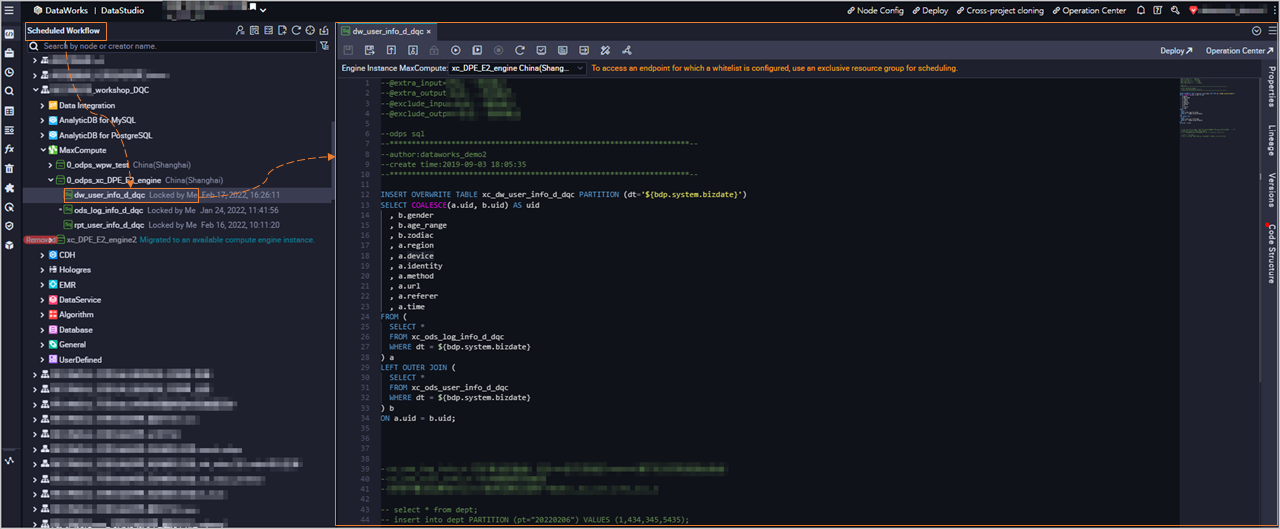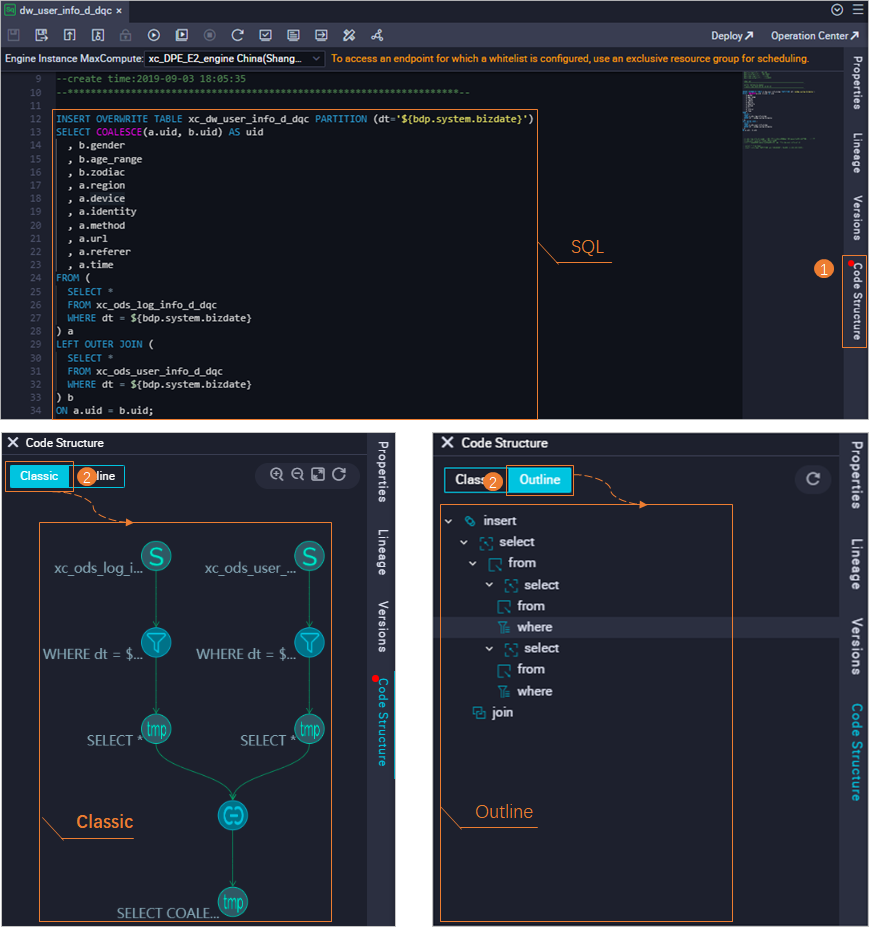DataWorks では、ノードのコードから解析された SQL コード構造を表示できます。コード構造は、問題のトラブルシューティング、コードの表示と変更に役立ちます。
ノードのコード構造の表示
DataStudio ページに移動します。
DataWorks コンソール にログオンします。上部のナビゲーションバーで、目的のリージョンを選択します。左側のナビゲーションペインで、 を選択します。表示されたページで、ドロップダウンリストから目的のワークスペースを選択し、[データ開発に移動] をクリックします。
ノードの構成タブに移動します。
[スケジュールされたワークフロー] または [手動でトリガーされるワークフロー] ペインでノードを検索できます。その後、ノードをダブルクリックして、ノードの構成タブに移動します。

ノードのコード構造を表示します。
右側のナビゲーションペインで、[コード構造] をクリックして、クラシックモードまたはアウトラインモードでノードのコード構造を表示します。

クラシックモード: 整理された SQL 演算子に基づいて SQL コードを実行し、最終結果を取得します。クラシックモードでは、構造に含まれる SQL 演算子と演算子間の関連付けが表示されます。
SQL 演算子にポインターを移動すると、その演算子のタイプを表示できます。次のリストは、コード構造で使用される一般的な SQL 演算子について説明しています。
ソーステーブル: クエリ対象のテーブルです。

フィルター: クエリ対象のテーブル内のパーティションをフィルタリングするための条件です。

中間テーブル (クエリビュー): クエリ結果を格納する一時テーブルです。

この例では、3 つの中間テーブルが関係しています。最初のセクションに表示されている 2 つの中間テーブルは、対応するソーステーブルからのクエリ結果を格納するために使用されます。2 番目のセクションに表示されている中間テーブルは、結合されたクエリ結果を格納するために使用されます。この中間テーブルは 3 日間保存でき、3 日後に自動的に削除されます。
結合: クエリ結果を結合するための操作です。

アウトラインモード: アウトラインモードでは、コードの主要な SQL ステートメントのディレクトリが表示されます。
クラシックモードで対応する SQL 演算子、またはアウトラインモードでステートメントをクリックすると、特定のコードブロックを表示できます。その後、必要に応じてコードを変更できます。